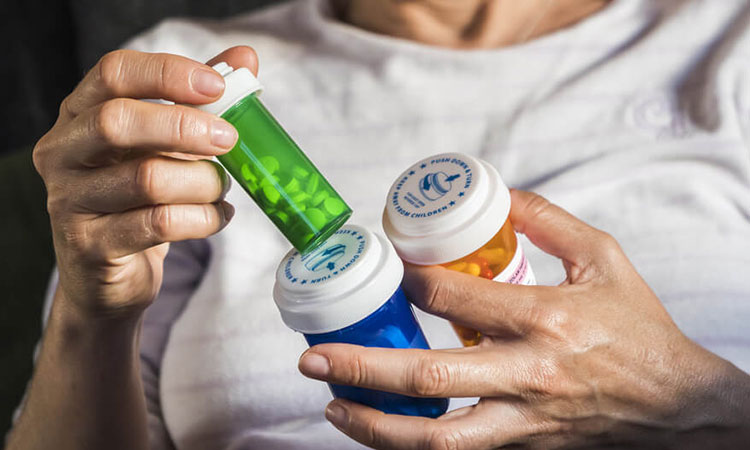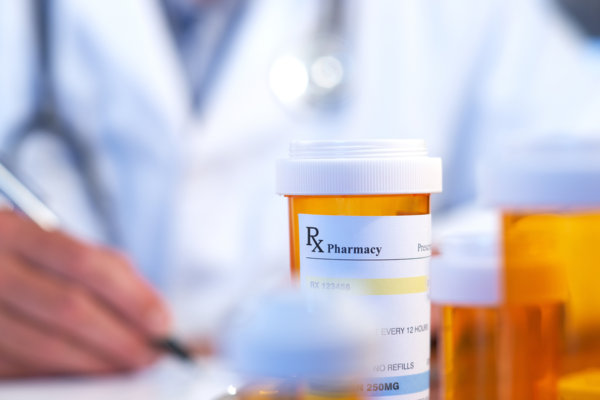
Medication for Alcoholism – The National Institute on Drug Abuse (NIDA) states that three medications have been approved by the Food and Drug Administration (FDA) for the treatment of alcohol use disorder. These medications include disulfiram, naltrexone, and acamprosate.
In addition to these medications, certain drugs such as barbiturates may also be used in a detox setting to prevent life-threatening seizures or other complications that can occur during withdrawal. Medications for alcohol addiction should only be used in accordance with a prescription since they are ineffective unless they are used as directed.
Medication for Alcoholism
1. Disulfiram
Disulfiram (Antabuse) is the earliest anti-alcoholism medication approved by the FDA. When a person uses Antabuse, the body no longer breaks down the toxic alcohol byproduct known as acetaldehyde, causing it to accumulate in the bodies of people who drink while using Antabuse. The presence of this toxin causes extremely unpleasant side effects such as nausea, vomiting, sweating, and headaches.
Ideally, Antabuse should cause a response to alcohol that is so vehemently unpleasant that the alcoholic will avoid drinking at all costs. Nevertheless, alcoholism has proved itself to be a chronic, stubborn disease, and many people in its grip continue to drink even after using Antabuse, or simply stop taking it.
Moreover, Antabuse has a high rate of non-compliance, so physicians are often hesitant to recommend the drug to patients, especially in primary care settings. Research has shown, however, that Antabuse can be an effective component in a comprehensive treatment program that also includes psychotherapy. Still, because it causes a buildup of toxins, drinking excessively while using Antabuse can result in more serious complications, including death.
2. Naltrexone
Naltrexone is commonly marketed under the brand names ReVia (oral tablets) and Vivitrol (monthly injections). This substance’s mechanism of action is as an opioid antagonist, meaning that it interferes with the way the brain responds to opioid exposure, and as a side effect, alcohol as well. Naltrexone blocks some of the receptors in the brain that react to alcohol, thus mitigating its pleasant effects.
When taken orally as a tablet, naltrexone must be used exactly as prescribed for the drug to be effective. When administered as an injection, however, the drug only needs to be used once a month. This ease of use may promote compliance because there is no need to take a daily pill, so the patient cannot offhandedly decide to just skip a dose in favor of relapse.
However, the injectable form can also cause problems of its own, including pain, infection, or tissue destruction at the injection site. Naltrexone in either form can induce side effects such as headaches, nausea, and fatigue. Using too much naltrexone can also lead to liver damage.

3. Acamprosate
Acamprosate (Campral) is the latest drug to be approved for the treatment of alcoholism. Like naltrexone, acamprosate works on the brain by altering it’s reaction to alcohol so that the person using it is less likely to encounter cravings. Acamprosate may also relieve some of the chronic physical effects of alcohol withdrawal, such as depression, edginess, and sleep disturbances.
Research has shown that alcoholics who used acamprosate had reduced relapse rates and a greater number of sober days than those who didn’t use it. Naltrexone and acamprosate are commonly prescribed in conjunction and make treatment even more effective.
Use of Medication for Alcoholism in a Recovery Program
In addition to self-help groups, counseling and behavioral therapies such as those provided by Recovery By The Sea have historically been the first-line strategies for helping alcoholics achieve sobriety and prevent relapse. While these psychosocial techniques still play a vital role in the treatment of drug and alcohol addiction, the use of medication has also become increasingly important.
A person can benefit from medication-assisted treatment for alcoholism in the following ways:
1. Curb Cravings
Every alcoholic who is in recovery, regardless of how long, faces the risk of relapse. As a person is doing challenging work during recovery from this disease, pharmaceutical drugs such as ReVia and Campral can assist him or her to combat the urge to drink by rendering alcohol less desirable. Ondansetron and topiramate have also been used off-label and may make it easier to sustain abstinence.
2. Provide Greater Incentives
While Antabuse does not have a remarkable compliance rate, this medication has helped many alcoholics resist relapse by making the experience of drinking extraordinarily unpleasant and even dangerous.
3. Psychological Support
Alcohol addiction is a chronic and sometimes unyielding condition, and individuals in recovery usually need far more than one support tool in their arsenal to maintain long-term sobriety. When a person is working his or her way through recovery, the use of medication may provide them with a sense of increased confidence, in that they are actively employing all the resources they have at their disposal.
If you or a loved one is struggling with alcoholism, please contact Recovery By The Sea today and discover how we can help you free yourself from the grips of substance abuse and reclaim the fulfilling life you deserve.